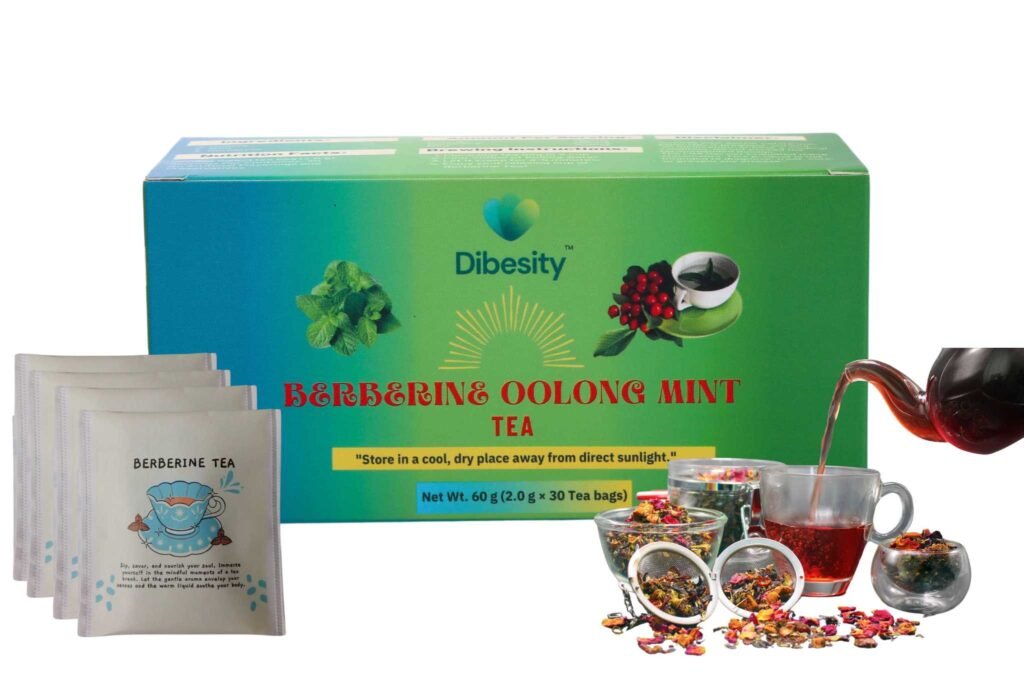Irritable Bowel Syndrome (IBS) is a prevalent gastrointestinal disorder affecting a significant portion of the population worldwide. It is characterized by a range of symptoms, including abdominal pain, bloating, gas, and altered bowel habits such as diarrhea or constipation.
The exact cause of IBS remains elusive; however, it is believed to result from a combination of genetic, environmental, and psychosocial factors. It is important to note that IBS is a functional disorder, meaning that it is related to how the gut functions rather than structural abnormalities.
IBS can manifest differently among individuals, leading to a varied experience regarding symptom severity and frequency. The condition often leads to significant emotional distress, affecting pertinent areas of life such as work, social interactions, and overall well-being.
As symptoms can be triggered by certain foods or stress, individuals diagnosed with IBS frequently face challenges in managing their condition and maintaining a balanced lifestyle.
The diagnosis of IBS primarily relies on the evaluation of symptoms, physical examinations, and ruling out other gastrointestinal disorders through various diagnostic tests.
Healthcare professionals often utilize criteria such as the Rome IV criteria to facilitate the diagnosis process. Given the complexity of IBS and its potential overlap with other conditions, a comprehensive assessment is crucial.
Considering dietary modifications plays a vital role in the management of IBS symptoms. Many individuals look to natural remedies, such as organic berberine tea, to alleviate their discomfort and promote gut health.
This approach aligns with the growing interest in holistic dietary interventions, providing an opportunity to explore how organic berberine tea may contribute to digestive health. In examining the spectrum of available treatments, it is essential to recognize the importance of affordable options, such as an organic berberine tea cost comparison, for those seeking an alternative solution to their IBS symptoms.
Understanding Berberine: The Natural Remedy
Berberine is a powerful bioactive compound that can be found in various plants, particularly in herbs such as Golden Seal, Barberry, and Oregon Grape. This naturally occurring alkaloid has a rich history in traditional medicine and has been used for centuries in practices ranging from Chinese herbal medicine to Ayurvedic treatments.
Its extensive popularity can be attributed to its wide-ranging health benefits, predominantly its remarkable effects on gastrointestinal health, making it a compelling option for individuals suffering from conditions such as irritable bowel syndrome (IBS).
Research indicates that berberine exhibits a multitude of biological activities, including anti-inflammatory, antimicrobial, and antioxidant properties. These attributes contribute significantly to its effectiveness in treating IBS, as they help to modulate gut flora and reduce inflammation in the gastrointestinal tract. When consumed as organic berberine tea for gut health, this compound may promote balance within the digestive system, leading to improved overall function and relief from common IBS symptoms such as bloating, constipation, and diarrhea.
In addition to its gastrointestinal benefits, berberine has also been shown to support metabolic health by aiding in the management of blood sugar levels and lipid metabolism. This multifaceted approach to health is particularly appealing for individuals looking for natural remedies, especially in light of rising interest in organic berberine tea for irritable bowel syndrome. Furthermore, the integration of berberine into dietary practices offers a convenient solution for those seeking integrative health solutions without the side effects commonly associated with pharmaceuticals.
Understanding the background and properties of berberine is essential for recognizing its potential as a natural remedy. The strong historical context and traditional applications underscore its relevance as a complementary approach to managing IBS, giving individuals the confidence to consider organic berberine tea as a viable option in their health arsenal.
The Benefits of Organic Berberine Tea
Organic berberine tea has garnered increasing attention as a potential natural remedy for individuals suffering from Irritable Bowel Syndrome (IBS). Known for its range of health benefits, this herbal tea offers promising support for gut health due to its anti-inflammatory properties. Inflammation is often a contributing factor to various gastrointestinal disorders, including IBS, and organic berberine has been shown to reduce inflammation, thus alleviating symptoms.
One of the primary advantages of consuming organic berberine tea for irritable bowel syndrome lies in its ability to aid digestion. The bioactive compounds present in berberine promote effective gut motility, which can help in reducing symptoms such as bloating, gas, and constipation common among IBS patients. Furthermore, these compounds support the secretion of digestive enzymes, enhancing nutrient absorption and overall digestive health.
Another significant benefit of organic berberine tea is its potential to regulate gut flora. A balanced microbiome is essential for optimal gut health, and disturbances in gut flora can exacerbate IBS symptoms. Studies have demonstrated that organic berberine can help restore balance by inhibiting harmful bacteria while promoting the growth of beneficial microorganisms. This microbiome modulation not only aids in symptom relief but may also contribute to long-term gut health improvement.
Anecdotal evidence from individuals who incorporate organic berberine tea into their routines often highlights marked improvements in their IBS symptoms, illustrating its practical efficacy. While research is still evolving in this area, it is important to recognize the significance of understanding both the cost comparisons and the nutritional value of organic berberine tea in relation to other remedies for gut health. Overall, these benefits make organic berberine tea a promising option for those seeking alternative strategies to manage their IBS symptoms effectively.
How to Prepare Organic Berberine Tea
Preparing organic berberine tea at home is a straightforward endeavor that requires just a few ingredients and some simple steps. First, it is essential to source high-quality, organic berberine-rich plants, such as the roots of Goldenseal or Oregon Grape, as these contain the necessary compounds for optimal health benefits. Many health stores and online retailers offer these plants in dried formats, ensuring convenience for consumers looking to incorporate organic berberine tea for irritable bowel syndrome into their daily routine.
Once you have sourced your organic berberine, it’s time to begin the brewing process. Start by measuring about one to two teaspoons of the dried berberine-rich plants and place them in a pot or tea infuser. Next, bring a pot of fresh, filtered water to a boil, ensuring the water is clean to extract optimal flavor and health benefits from the berberine. After boiling, pour the hot water over the plant material and allow it to steep for approximately 10 to 15 minutes. This waiting period allows the essential compounds to infuse thoroughly into the water.
For those seeking to enhance the taste of their organic berberine tea for gut health, consider adding a touch of honey or lemon. However, it is important to use these additional ingredients sparingly, as the focus should remain on the health benefits conferred by the organic berberine itself. After steeping, strain the tea into a cup, discarding the solid plant material. Enjoy your freshly brewed tea, knowing that you have created a beverage specifically tailored to support gut health and alleviate symptoms of irritable bowel syndrome.
Understanding the cost comparison of organic berberine tea can also help guide your purchasing decisions and routine. Overall, this simple yet effective preparation method ensures the maximum health benefits of this natural remedy are readily available.
Best Practices for Incorporating Berberine Tea into Your Diet
Incorporating organic berberine tea into your daily routine can be a beneficial strategy for managing irritable bowel syndrome (IBS) and promoting gut health. To maximize the efficacy of this herbal remedy, it is essential to understand the best practices in terms of serving sizes, timing, and dietary pairing.
When it comes to serving sizes, it is generally recommended to start with one cup of organic berberine tea per day, gradually increasing the intake to two to three cups as tolerated. This provides a sufficient concentration of berberine to support gut health without overwhelming the digestive system. Each cup of tea can be prepared using one to two teaspoons of dried berberine herb steeped in hot water for about 5 to 10 minutes. Adjusting the steeping time will help you find the intensity that suits your taste and health needs.
The timing of consumption is also important. Many individuals with IBS may benefit from drinking organic berberine tea in between meals. This approach can help reduce digestive discomfort and maintain a balanced gut environment. For instance, enjoying a cup mid-morning and another in the afternoon can provide consistent support for gut health throughout the day.
Pairing organic berberine tea with certain dietary components can enhance its effectiveness for managing IBS symptoms. Combining the tea with foods rich in probiotics, such as yogurt or fermented vegetables, may foster a healthy gut microbiome. Additionally, including fiber-rich foods—like whole grains, fruits, and vegetables—while consuming berberine tea can further promote digestive health. Integrating these practices into your daily life can create a harmonious routine that supports the advantages of organic berberine tea for irritable bowel syndrome and overall wellness.
Potential Side Effects and Precautions
While organic berberine tea for irritable bowel syndrome (IBS) offers several benefits, it is vital to consider potential side effects and interactions. Berberine, a compound found in various plants, has been recognized for its therapeutic properties; however, its consumption may not be suitable for everyone, particularly individuals with specific pre-existing medical conditions or those taking certain medications.
Some common side effects associated with berberine include gastrointestinal discomfort, such as diarrhea, constipation, and stomach cramps. These symptoms may be particularly concerning for those with IBS, where the gastrointestinal tract is already sensitive. Although organic berberine tea for gut health can be beneficial for many, it is essential to monitor the body’s response when initially introducing this herb into the diet.
Moreover, berberine interacts with various medications, such as those for diabetes or blood pressure. This interaction can lead to an exaggerated effect, resulting in unexpected drops in blood sugar or blood pressure levels. Hence, individuals taking such medications should exercise caution when considering organic berberine tea. Additionally, those with liver or kidney impairments should be particularly vigilant, as berberine may affect the metabolism and excretion of different drugs.
Given these considerations, it is crucial to consult with a healthcare professional before starting any new dietary regimen involving organic berberine tea. A healthcare provider can offer personalized guidance and help determine if this tea is appropriate for your health status and current medications. Engaging in informed discussions can potentially mitigate risks and enhance the overall efficacy of organic berberine tea for improving gut health.
Personal Testimonials: Real-life Experiences with Berberine Tea
The journey towards better gut health often leads individuals to explore various natural remedies, and organic berberine tea has gained particular attention among those dealing with irritable bowel syndrome (IBS). Many users have reported significant improvements in their digestive health after incorporating this herbal tea into their daily routines. These testimonials reflect a diverse array of experiences and highlight the potential benefits of organic berberine tea.
One individual shared that after years of struggling with IBS symptoms, they decided to try organic berberine tea based on a friend’s recommendation. Initially skeptical, they were pleasantly surprised by the results. Within weeks of consistent consumption, they noticed a considerable reduction in bloating and abdominal discomfort. This person now emphasizes the importance of choosing high-quality organic berberine tea for maximum effectiveness, arguing that not all brands deliver the same results.
Another user discussed how they integrated organic berberine tea into their morning routine. They replaced their usual caffeinated beverage with this herbal option, which they found to be both soothing and beneficial for their gut health. Consuming berberine tea not only helped in alleviating their IBS symptoms but also contributed to improved metabolic health. Additionally, they pointed out that organic berberine tea is often more affordable compared to prescription medications, which was a significant advantage for them.
Furthermore, various other users echoed the sentiment that organic berberine tea helped regulate their bowel movements and enhanced overall digestive comfort. Many advised fellow IBS sufferers to consider this natural remedy as part of their management strategies, sharing tips on optimal brewing times and flavoring options to enhance palatability. These relatable experiences demonstrate the potential of organic berberine tea for gut health, making it an appealing alternative for those seeking solace in nature’s remedies.
Other Natural Remedies for IBS
In addition to organic berberine tea for irritable bowel syndrome (IBS), several other natural remedies are available that can help soothe digestive disturbances and promote overall gut health. Herbal teas, in particular, are popular choices among those seeking alternative remedies. Two widely acknowledged options are peppermint tea and ginger tea, each known for their unique benefits in managing gastrointestinal discomfort.
Peppermint tea is renowned for its calming effects on the digestive system. The menthol compound found in peppermint is effective in relaxing the muscles of the gastrointestinal tract, which can help alleviate symptoms such as bloating and cramping associated with IBS. When consumed in conjunction with organic berberine tea for gut health, peppermint tea may enhance the overall soothing experience for individuals facing digestive challenges. This synergistic approach allows individuals to enjoy the benefits of both herbal remedies, potentially improving their digestive health.
Ginger tea is another valuable natural remedy that has gained recognition for its anti-inflammatory properties. Ginger is known to stimulate digestion and reduce nausea, which makes it particularly beneficial for individuals experiencing IBS-related symptoms. The integration of ginger tea alongside organic berberine tea for irritable bowel syndrome can foster a more comprehensive approach to managing gut issues. This combination can help address various symptoms by combining the beneficial effects of both tea types.
Exploring these alternative herbal teas provides individuals with more options to contemplate alongside organic berberine tea cost comparison. Each tea brings its unique properties that, when used together, can enhance gut health. As with any remedy, it is advisable to consult with a healthcare professional before incorporating new elements into your dietary routine to ensure they align with your health needs.
Conclusion: Is Organic Berberine Tea Right for You?
In evaluating the potential benefits of organic berberine tea for managing symptoms of irritable bowel syndrome (IBS), it is essential to consider several key aspects. First and foremost, numerous studies have indicated that organic berberine tea may provide significant support for gut health. The active compounds within berberine are known to help regulate digestive processes, alleviate inflammation, and improve gut microbiota, thereby promoting overall digestive well-being. This makes organic berberine tea a promising option for individuals seeking relief from IBS symptoms.
When contemplating the use of organic berberine tea for irritable bowel syndrome, cost is another vital factor to consider. A thorough organic berberine tea cost comparison allows consumers to make informed choices regarding the best options available within their budget. While the price of organic berberine tea may vary depending on brand and sourcing, its health benefits could justify the investment for those who experience chronic gastrointestinal discomfort.
Moreover, it is crucial to approach IBS management holistically. Combining the use of organic berberine tea with lifestyle modifications, such as dietary changes and stress management techniques, can further enhance its effectiveness in alleviating symptoms. Potential users should also consult healthcare professionals before initiating any new health practices, especially in cases of underlying medical conditions or when taking medications that may interact with berberine.
Ultimately, whether organic berberine tea is right for you will depend on individual health needs and circumstances. As research continues to evolve, it is worth considering this herbal tea as a supportive option for improving gut health and managing irritable bowel syndrome symptoms. Making well-informed decisions can play a pivotal role in achieving long-term relief and a better quality of life.



